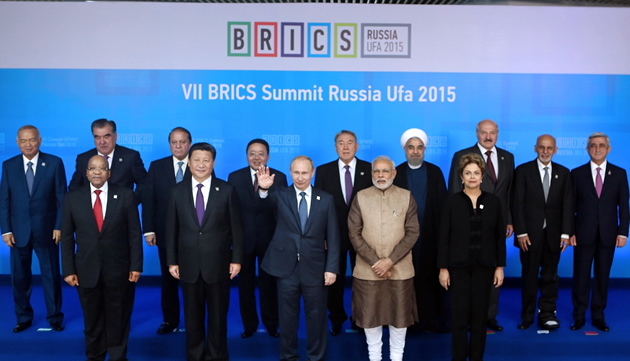BRICS: A key player in global affairs

 Tanaka Chitsa Correspondent
Tanaka Chitsa Correspondent
There is need to intensify global efforts to address and close the widening gap between rich and poor countries, which continues to affect sustainable development. This was said by Chinese President Xi Jinping at the ninth BRICS Summit, held in Xiamen, China on September 3-5. The BRICS group, comprising Brazil, Russia, India, China and South Africa, is a fast-growing global economic force. According to recent studies, the combined economies of the BRICS countries could eclipse the combined economies of the current richest countries of the world by the year 2050.
Mr Xi said given the growing status of the BRICS group, it is critical that it continues to work with other countries to reform and reconstruct the international economic order that is biased in favour of a few countries at the expense of the majority.
He said one of the challenges facing BRICS was to address this old order system and ensure that all countries are equal under international law.
“We need to make the international order more just and equitable,” President Xi said, adding that, “our ever closer ties with the rest of the world requires that we play a more active part in global governance.
“Without our participation, many pressing global challenges cannot be effectively resolved. We should speak with one voice and jointly present our solutions to issues concerning international peace and development.”
He said there was need to “make economic globalisation open, inclusive, balanced and beneficial to all, build an open world economy, support the multilateral trading regime and oppose protectionism.
“We need to advance the reform of global economic governance, increase the representation and voice of emerging markets and developing countries, and inject new impetus into the efforts to address the development gap between the North and South and boost global growth.”
At the summit, the BRICS pledged to continue working with developing countries including those in Africa to help unlock their potential.
The Xiamen Declaration issued soon after the summit shows the BRICS countries reaffirmed commitment to strengthen cooperation with Africa and help the continent to address challenges such as illegal wildlife trade, unemployment and poor infrastructure. This will be achieved through strong support for African Union’s implementation of various targets under Agenda 2063 in pursuit of the continental agenda for peace and socio-economic development.
Major aspirations under Agenda 2063 include high-speed railway and interconnected road networks, shipping lines, sea and air transport, as well as developed Information Communication Technology (ICT) and a digital economy. In a move to increase cooperation among BRICS countries, China pledged to launch an Economic and Technical Cooperation Plan for BRICS countries, with a total of 500 million yuan (approximately $77 million) set aside for the first term to facilitate policy exchange and practical cooperation in the economic and trade fields.
The impact of the BRICS countries is already being felt across the global including in Africa. For example, a regional development bank was recently launched by the BRICS countries to service the African continent.
The Africa Regional Centre of the New Development Bank (NDB) is based in Johannesburg, South Africa. The regional bank is expected to unlock the continent’s socio-economic potential through providing resources for infrastructure and other development.
The NDB, formerly known as the BRICS Development Bank, is head-quartered in Shanghai, China.
The main aim of the BRICS Development Bank, established in February 2016, is to mobilise resources for infrastructure and sustainable development projects in BRICS member states and other emerging economies, as well as in developing countries.
This year’s summit was held under the theme, “BRICS: Stronger Partnership for a Brighter Future”. The tenth BRICS Summit will be held next year in South Africa. For the first time, the summit saw five non-BRICS countries invited to participate in the deliberations — Egypt, Kenya, Tajikistan, Thailand and Mexico. Their invitation is part of plans by the BRICS to broaden cooperation with non-members. This is a welcome development as it provides an opportunity to strengthen partnership between developed and emerging economies. — sardc.net









Comments